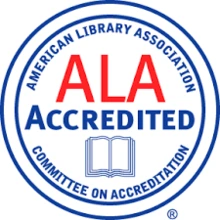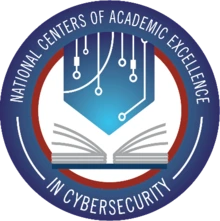About the College of Information Science
Shape the future of information.
Our Vision
Our Mission
- Conduct interdisciplinary research, teaching and service that address global information challenges.
- Ignite discovery and innovation.
- Leverage core strengths in artificial intelligence, cybersecurity, data science, machine learning, extended reality, creative computing, libraries, museums and digital collections into world-class centers of excellence.
OUR COMMUNITY, HISTORY & RANKINGS
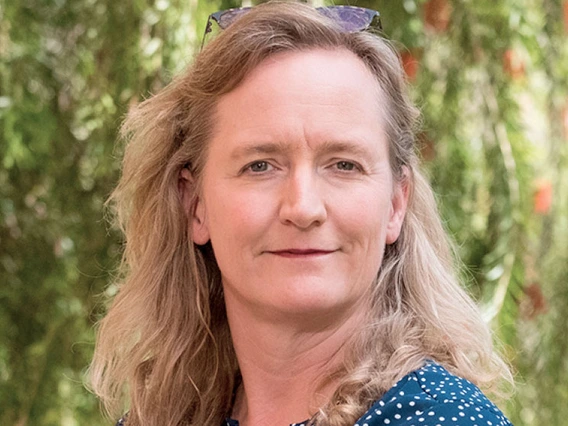
MEET THE DEAN
Interim Dean Dr. Catherine Brooks's primary focus is bringing information scientists (librarians, data scientists, game developers, information managers, ethicists) from across academic fields and applied sectors together to function as a "faculty of one" while enhancing the college's diverse array of academic offerings.

COLLEGE LEADERSHIP
The College of Information Science is led by Interim Dean Catherine Brooks as well as her leadership team, comprised of deans and directors in such areas as research, graduate academic affairs, undergraduate academic affairs, faculty affairs, curricular and academic affairs, finance and administration, and marketing and communications.
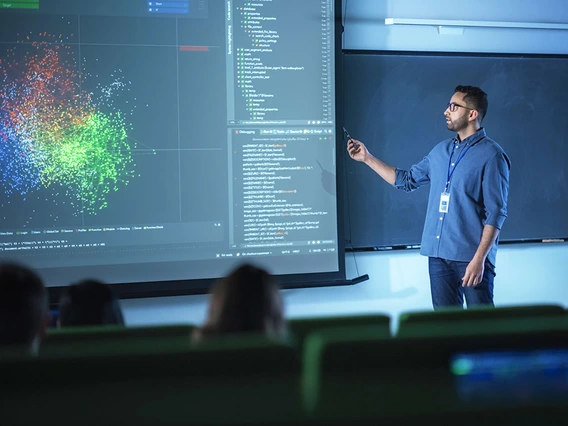
FACULTY & STAFF DIRECTORY
The Faculty and Staff Directory of the College of Information Science provides a comprehensive list of our hardworking professionals, including titles, contact information, areas of research and more.
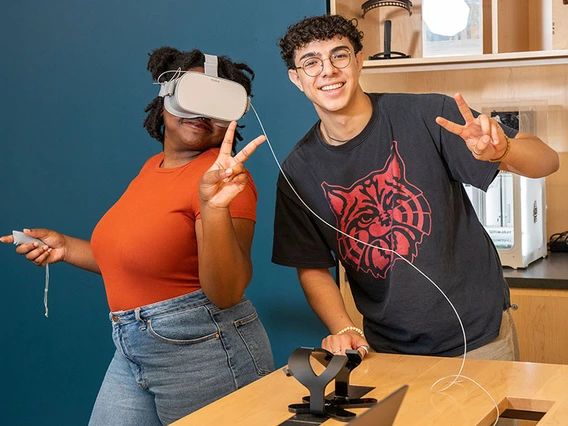
MEET OUR STUDENTS
The bachelor's, master's and doctoral students of the College of Information Science come from a wide variety of backgrounds as they strive to shape the future of information.

HISTORY
Hatched in 2015 out of a merger of two existing units (the School of Information Resources and Library Science and the School of Information Science, Technology and Arts), the School of Information at the University of Arizona became its own college on July 1, 2023 and was renamed the College of Information Science on July 1, 2024. On July 1, 2025, the College of Applied Science and Technology integrated ito the College of Information Science.

RANKINGS & DESIGNATIONS
Several College of Information Science degrees are highly ranked, including Cyber Operations, Data Science, Game Design and Development, Information Science, and Library and Information Science. We are also designated a National Center of Academic Excellence in Cybersecurity by the National Science Foundation.
"I chose InfoSci because it gave me the flexibility to explore the things I am most interested in. I don’t know of any other college that affords its students such flexibility."
Kapua Ioane, BS in Information Science '23, MS in Information Science '26
COLLEGE GOALS & OBJECTIVES
The College of Information Science has four primary goals and several subsequent objectives.
Click a link below to review each goal and its objectives:
College of Information Science degree programs provide education focusing on services and technologies for knowledge, information and data creation, organization, management, access and use in various settings and environments.
1.1. By the end of their program, students will demonstrate the competencies related to their area of study.
1.2. Graduates will be prepared to show accomplishment and leadership as their careers unfold.
1.3. The college will recruit and retain faculty, both full-time and part-time, in sufficient numbers and with relevant expertise and commitment to teaching to support the achievement of the goals and objectives of the College of Information Science and the curriculum, including student achievement of learning outcomes.
1.4. The curriculum will reflect the interdisciplinary nature of the study of knowledge and information.
1.5. The curriculum will maintain quality and excellence in online, hybrid and face-to-face courses, participating in review by peers, university resources such as the Office of Instruction and Assessment, and external review resources such as Quality Matters.
1.6. The curriculum will address the needs of the program’s constituencies, including students, alumni and employers in the information professions.
Faculty will conduct original scholarly inquiry and research related to knowledge, information and data creation, organization, management, access and use in a multitude of environments and cultural communities. Through the dissemination of their research, the faculty foster learning and dialogue about professional and societal issues important in the age of information.
2.1. Faculty hired on tenure track will be tenure-capable and will be supported in their efforts to achieve tenure.
2.2. Faculty hired on continuing track will be supported in their efforts to design and teach courses, provide service to the College of Information Science and its constituencies, and participate in professional activities.
2.3. Faculty disseminate the results of their work through presentations and publications in venues and locales appropriate to their research, scholarly and outreach goals, and objectives.
The College of Information Science strives to foster a wide range of perspectives in its curriculum, research and outreach and to provide opportunities for all students, faculty and staff.
3.1. A range of perspectives are represented in the curriculum.
3.2. The College of Information Science strives to foster a student body that reflects a variety of experiences and viewpoints.
3.3. The College of Information Science strives to foster faculty, both full-time and part-time, that reflects a variety of experiences and viewpoints.
3.4. The College of Information Science strives to foster staff who reflect a variety of experiences and viewpoints.
The College of Information Science acts as a catalyst for enhancing knowledge and information resources, technologies and services in Arizona, the Southwest, the nation and internationally through connections and interactions with communities, employers and other constituencies interested in knowledge and information issues in a changing society.
4.1. The college develops and maintains connections, interactions and collaborations with local, state and national library and information professional communities.
4.2. The college develops connections, interactions and collaborations with other disciplines and constituencies interested in knowledge and information issues in a changing society.
Contact the College of Information Science
Have a question, or ready to learn more about the University of Arizona College of Information Science? Contact us:


